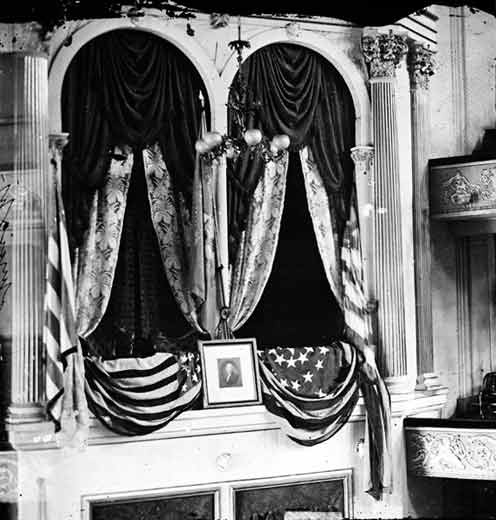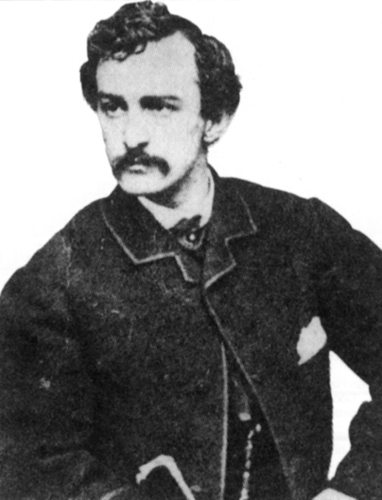Feb 9 - The Assassination of Abraham Lincoln PBS - 10 pm
Feb 10 - Re airing of above - 1 pm
Feb 11 - Looking for Lincoln - PBS - 9-11 pm
Feb 12 - CNN, Fox News and other news stations should have programming for many events throughout that day...
http://www.eyewitnesstohistory.com/19frm.htm (on this site, read the last two articles on the right side of the page)
http://www.sonofthesouth.net/slavery/index.html
http://abrahamlincolnblog.blogspot.com/
Continue to read and do 30 page summaries ( contact me for new books or book ideas)
Continue to prepare and work on your Veteran's Project









Abraham Lincoln, Matthew Brady's photo of the President's Box at Ford's Theatre - April 15, 1865, current views of the box, Booth, and the derringer pistol Booth used to kill the president
FOR YOUR ENJOYMENT, SEE THE POEM AND STORY BELOW
O Captain, My Captain ( a poem by Walt Whitman in 1865 on the death of Abraham Lincoln)
O Captain! my Captain! our fearful trip is done,
The ship has weather'd every rack, the prize we sought is won,
The port is near, the bells I hear, the people all exulting,
While follow eyes the steady keel, the vessel grim and daring;
But O heart! heart! heart!
O the bleeding drops of red,
Where on the deck my Captain lies,
Fallen cold and dead.
O Captain! my Captain! rise up and hear the bells;
Rise up--for you the flag is flung--for you the bugle trills,
For you bouquets and ribbon'd wreaths--for you the shores a-crowding,
For you they call, the swaying mass, their eager faces turning;
Here Captain! dear father!
This arm beneath your head!
It is some dream that on the deck,
You've fallen cold and dead.
My Captain does not answer, his lips are pale and still,
My father does not feel my arm, he has no pulse nor will,
The ship is anchor'd safe and sound, its voyage closed and done,
From fearful trip the victor ship comes in with object won;
Exult O shores, and ring O bells!
But I with mournful tread,
Walk the deck my Captain lies,
Fallen cold and dead.
A story told by Leo Tolstoy, the great writer of his day, on Abraham Lincoln's Legacy in the World:
In 1908, in a wild and remote area of the North Caucasus, Leo Tolstoy, the greatest writer of the age, was the guest of a tribal chief “living far away from civilized life in the mountains.”
Gathering his family and neighbors, the chief asked Tolstoy to tell stories about the famous men of history. Tolstoy told how he entertained the eager crowd for hours with tales of Alexander, Caesar, Frederick the Great, and Napoleon.
When he was winding to a close, the chief stood and said, “But you have not told us a syllable about the greatest general and greatest ruler of the world. We want to know something about him. He was a hero. He spoke with a voice of thunder; he laughed like the sunrise and his deeds were strong as the rock…His name was Lincoln and the country in which he lived is called America, which is so far away that if a youth should journey to reach it he would be an old man when he arrived. Tell us of that man.”
“I looked at them,” Tolstoy recalled, “and saw their faces all aglow, while their eyes were burning. I saw that those rude barbarians were really interested in a man whose name and deeds had already become a legend.” He told them everything he knew about Lincoln’s “home life and youth…his habits, his influence upon the people and his physical strength.” When he finished, they were so grateful for the story that they presented him with “a wonderful Arabian horse.”
The next morning, as Tolstoy prepared to leave, they asked if he could possibly acquire for them a picture of Lincoln. Thinking that he might find one at a friend’s house in the neighboring town, Tolstoy asked one of the riders to accompany him. “I was successful in getting a large photograph from my friend,” recalled Tolstoy. As he handed it to the rider, he noted that the man’s hand trembled as he took it. “He gazed for several minutes silently, like one in a reverent prayer, his eyes filled with tears.”
Tolstoy went on to observe, “This little incident proves how largely the name of Lincoln is worshipped throughout the world and how legendary his personality has become. Now why was Lincoln so great that he overshadows all other national heroes? He really was not a great general like Napoleon or Washington; he was not such a skilful statesman as Gladstone or Frederick the Great; but his supremacy expresses itself altogether in his peculiar moral power and in the greatness of his character.
“Washington was a typical American. Napoleon was a typical Frenchman, but Lincoln was a humanitarian as broad as the world. He was bigger than his country — bigger than all the Presidents together.
“We are still too near to his greatness,” Tolstoy concluded, “but after a few centuries more our posterity will find him considerably bigger than we do.


No comments:
Post a Comment